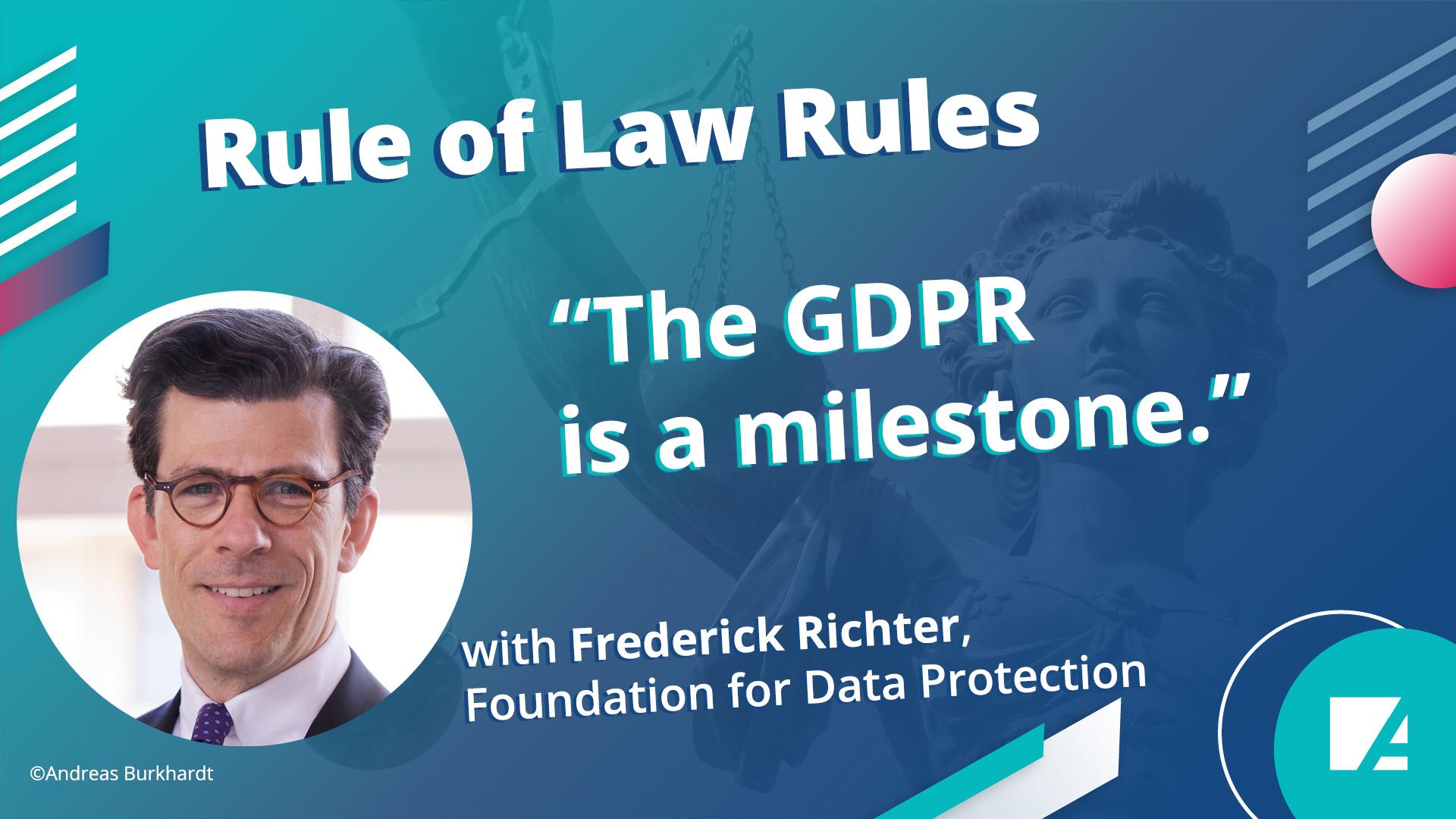Administrative decisions in in light of recalcitrant administration - Rule of Law Programme Middle East and North Africa
Single title
Lebanon is part of the States that adopt the system of jurisdictional duality. Such duality involves the existence of two separate jurisdictions: the administrative order and the judicial order, both respectively headed by the State Council and the Supreme Court. This separation between the jurisdictional orders is the way to forbid a judicial judge from interfering in administration-related matters.
The administrative order is held by the Lebanese State Council located in the capital, Beirut. This legal body was first founded on September 6, 1924 following the creation of the State of Greater Lebanon. However, the State Council was repeatedly subject to annulment between 1928 and 1953 until it was established once and for all in 1953. The Lebanese State Council plays the role of both the court of appeal and that of the highest court ruling in last resort.
This being said, the State Council is the highest jurisdiction of the administrative order. It possesses jurisdictional attributions as well as advisory administrative responsibilities. Such powers are given to the State Council by virtue of articles 56 and 57 of the regulation of the Lebanese State Council.
The Council’s cases are held by administrative judges distributed according to the different missions that are entrusted to them. The council is actually composed as following: the Council’s president, the government commissioner, the heads of chambers, the advisors and lastly, the associate advisors.
Each chamber of the State Council is headed by a president. The council holds six chambers in total: one administrative chamber and five judicial chambers[1]. All in all, the State Council gathers 99 magistrates distributed as following: 73 judges for the State Council, 26 judges for the administrative jurisdictions that have not yet been formed or that have not begun their mission[2]. In fact, the ranking of the position of each administrative judge is made explicit by the article 36 of the regulation of the State Council.
Following the above mentioned, we may now raise the legal question relevant to this matter: In the case of the non-enforcement of the decisions rendered by the State Council, what are the methods that the high administrative court may use in order to fight against the obstruction caused by the recalcitrant administrations?
After having exposed this administrative body’s activity, we may, firstly, discuss the enforcement of the State Council’s decisions (I) in order to elucidate, secondly, the remedies, the coercive processes and the recommendations (II) facing the recalcitrant attitude of the affected administrations.
I. The Enforcement of the State Council’s Decisions
A) The Unenforced Decisions
a. The Rendering of the Judgments
The decisions are taken in each of the five chambers of the State Council by an entity composed of a president and two other members, one of whom gives the final verdict. The judgment is either taken unanimously or by the majority.
The governing body meets following an invitation previously made by its president according to article 46.
The judgment is rendered in the name of the Lebanese people.
Jurisdictional Methods of Enforcement
The State Council rigorously practices its legality control duty over all the acts of the administration. In other words, administrative judges can, nowadays, order that the enforcement of certain administrative decisions be halted to prevent that the harm caused be worsened. Moreover, the State Council obtained even more power in 1993; date on which it was allowed to pronounce, for the first time, a penalty sanction towards a recalcitrant administration. [3]Given that the lack of enforcement caused by the administration is not easily punished, the Council resorts to penalty in the case where the administration would refrain from executing the decision or would provoke a delay in the enforcement for no valid motive.
Additionally, another measure that the State Council could take and that would guaranty an effective enforcement would be the injunction. In certain legal systems, the administrative judge has the right to file an injunction against a given public body; however, in order to do so, some conditions must be met. Firstly, such power cannot be automatically exercised; an express request must be made by a diligent claimant seeking that the enforcement of the judgment rendered in his favor be safe from any possible impediment caused by a recalcitrant public agent. Nonetheless, the injunction must meet the following two conditions: on the one hand, the judge will have to impose, within his judgment, a specific measure to follow in the enforcement of the res judicata or, on the other hand, the judge will have to impose that a new decision be taken by the public body in a specific timeframe.
Extra- Jurisdictional Methods of Enforcement
Aside from the classical methods of enforcement of the administrative judge’s decisions, there are extra-jurisdictional recourses that can guaranty the protection of the litigant against a risk of non-enforcement.There are in fact several ways permitting a litigant to protect his rights. The latter can resort to a mediator in order to solve the conflict as well as use his right of petition. Another way to force the administration to enforce administrative decisions would be by communicating to the public an annual report explaining the activity of the State Council as well as the decisions that were taken and implemented later on; an idea stated in article 46 paragraph 2.
Lastly, an administration would be put under pressure to implement administrative decisions when it will feel targeted by the media. At that point, the executive body, fearing a possible attack before the public, will ensure the respect of the decisions taken against it and the correct restitution of justice.
b. The Legal Impact of the Rendered Decisions
The enforcement order is an order given to public officers and bailiffs who are asked to comply with the request that is made to them by the beneficiary of an act to which it is relevant. It compels them to proceed with the enforcement of the provisions contained in the given title by all means of enforcement[4]. Thanks to this reference, the taken decision is enforceable and must be implemented. The legal consequence of the enforceability of the State Council’s decisions consists in the fact that the administration is forced to take all the necessary measures leading to the enforcement of the said decisions. The decisions of the administrative judges are obligatory. They are imposed on the administration without restriction or restraint.
B) The Diversity of the Unenforced Decisions
Article 93 of the regulation of the Lebanese State Council states that: “The provisions of the State Council shall be binding on the administration, and the administrative authorities shall abide by the legal cases as defined by these provisions. The legal person under common law shall, within a reasonable period of time, enforce the decisions of the State Council. If the enforcement is delayed for no reason, a fine may be imposed upon the request of the aggrieved party.
Any employee using his authority or influence, directly or indirectly, to delay the enforcement of the judicial decision mentioned in the previous paragraph shall be fined a sum not less than his three months’ salary and not more than his six months’ salary.”
However, it appears that in practice, the decisions of the State Council are mostly not implemented by some refractory administrations. There is, in fact, an underlying reason behind such lack of enforcement from the administrations.
The Categories of Unenforced Decisions
It appears that most of the decisions there are often rejected by the administrations are those concerning reassignments within the different public bodies. When the State Council halts a reassignment decided by a politician, the latter will abuse of his position and power in order to “move the pawns” as he pleases without anyone stopping him.Some Particular Cases
The main event responsible for triggering such resistance is a major judgement dating from almost fifteen years. In the given case, five general directors were placed at the disposal of another department by the minister in charge of the ministry where they worked. The latter filed a lawsuit before the State Council to protect their rights and the Council accepted their request; however, the decision rendered by the State Council on May 7, 2002[5] was not eventually enforced by the relevant administration.Another judgement highlights the problem of non-enforcement of the decisions rendered by the administrative judges. In fact, in the Najib Nasr decision of 2009[6], the claimants addressed the State Council to ask for the non-enforcement of a decision taken by the General Directorate of the General Security concerning the changes made to the rules of a competition after such competition had already started. Despite the decision rendered by the administrative judges, the parliament decided anyway to pass a law enabling the exceptional promotion of the candidates having been irregularly admitted in the contest in question.
Furthermore, the case opposing two parking companies at the airport of Beirut can be mentioned. One of the two companies filed a lawsuit against the other and its request was received by the State Council. The Minister of Public Works decided not to enforce the decision taken by the State Council and gave the green light to the second company which, later on, started it works in the airport.
II. Remedies, Coercive Processes and Recommendations: Remedies
A) Incentive Measures
Dreading that the State Council may have to face refractory administrations or officials, administrative judges have tempted to find provisional measures that may stop an eventual blockage.First, there is the suspended enforcement. The high administrative jurisdiction can decide to suspend the enforcement of the sentence rendered by the administration if found to be unconstitutional or illegal. This is in fact stated by article 77 of the regulation of the State Council which enables the State Council to decide a suspended enforcement.
Second, another way to prevent the risk of non-enforcement by administrations would be the injunction. The Lebanese State Council seems to interpret article 91 of its regulation as a formal prohibition for the judge to impose any kind of injunction against a given administration. Such interpretation is nevertheless very large[7]. By sticking to the exact terms of this article, we can find that there is no mention of any prohibition made in defiance of the administrative judge regarding the imposition of an injunction against the administration. Furthermore, article 93 of the same regulation obliges the administration to uphold the decisions rendered by the administrative judges. This is, in fact, a form of injunction against the administration to meet the demand defended by the State Council.
B) Curative Measures: The Penalty Payment
The penalty payment, acknowledged in article 93 of the regulation of the State Council, is a method of constraint which consists in sentencing a certain individual to pay a certain sum by delay period in the enforcement of an obligation resulting from a legal decision. Such penalty is, normally, considered to be the most efficient way to force an insubordinate official to enforce the decision rendered against him. However, this form of punishment appears to be an unsatisfying solution for the following reasons: on the one hand, just like the judgment itself is not enforced, the decision condemning an administration to pay such a penalty can also be subject to a non-enforcement, and, on the other hand, condemning the administration to pay is actually condemning the citizen; the actual victim, because the State receives its funds from the taxes imposed on to its citizens.C) Repressive Measures
a. The Condemnation of the Refractory Administration
When the administration would come to harm an individual by its acts, it is condemned to repair such harm by paying damages[8]. Such penalty is recognized by article 7 of the Universal Declaration of Human Rights (UDHR) of which Lebanon is a member.
b. The Personal Condemnation of the Recalcitrant Official
Furthermore, article 93 of the regulation of the State Council elucidates the recalcitrant official’s responsibility towards the audit court: “The official responsible of a delay in the enforcement can be sentenced by the audit court to pay a fine equal to a maximum of six times his monthly salary.”[9]
Moreover, the penal code states in article 371 that the rebellious official can be held criminally liable. He can in fact be sentenced to imprisonment for up to 2 years.
III. Recommendations
Additionally, we can also mention the legal system in Maghreb where articles were added to the Constitution allowing to hold liable before the relevant courts the minister responsible for any type of infraction or lack of enforcement.
Another method would be permitting the judge to enforce, by himself and directly, the decision he took if he finds that convenient. That is the solution that some countries have adopted such as Australia, Poland, Colombia[10].
Furthermore, another remedy would be to add, as professor Georges Saad suggests, to article 93 two more paragraphs stating the following: the first paragraph would stipulate that the rendering of a decision by the State Council would necessarily lead to a second administrative decision detailing the entire enforcement process for it belongs to the State Council to give orders to the administration but only when aiming to trigger the automatic and reasonable effect of the decision. The second paragraph would state that the decision rendered by the State Council and constraining the administration to pay a certain amount represents, in itself, an order to pay that the audit court of account must enforce. We may also precise that, in order for this provision to truly produce its effects, any text or norm that would come to violate or oppose to it is considered null.
It is however not sufficient to reform the texts, their forthcoming implementation must be insured. That is what is precisely recommended regarding articles 371 and 393 of the Lebanese penal code which permits the condemnation of a recalcitrant official.
Another unsolved problem is that regarding the fact that there is only one degree of jurisdiction among the administrative jurisdictions, which gives less chances to litigants to protect their right and would create a slighter pressure on the bodies responsible for the enforcement of a given sentence.
Furthermore, specialized enforcement circuits must be established for administrative jurisdictions to ensure the implementation of administrative decisions as it is the case for judicial decisions.
There are, finally, other efficient ways to remedy the given problem such as increasing the number of the number of administrative judges, promoting the accountability of the administrations, convincing politicians of the necessity of encouraging judicial autonomy and, lastly, improving the economic situation of the administrative judges.
Those are the different suggestions capable of decreasing the risk of non-enforcement of administrative decisions by recalcitrant administrations.
Note that some legal State bodies are attempting to increase their efforts in search of a reform to end this serious problem. In fact, the ministry of justice has prepared a report entitled “عدم إنفاذ القرارات الإدارية والعدلية والنتائج المترتبة عن ذلك” (the non-enforcement of the administrative and judicial decisions and the entailed consequences). On a related matter, the parliamentary committee of administration and justice is currently reviewing the possibility of amending the aforementioned article 93. Moreover, some administrations are seeking to solve the pending cases by taking a final decision to enforce the verdicts such as the case of 2016 concerning the governmental hospital in Bouar[11].
In the end, it is the civil society that is most encouraged to react and swing into action given that it can also have a great influence on the course of events and the changes in the State.
[1] Ministry of Justice, in « Organisation des juridictions administratives ».
https://www.justice.gov.lb/index.php/court-details/20/3
[2] Najib Farhat, in « في تقييم الأوضاع الإدارية في مجلس شورى الدولة في لبنان », 27-04-2015.
http://www.legal-agenda.com/article.php?id=1082
[3] الدليل إلى مجلس شورى الدولة، ص.26.
[4] Serge Braudo, in « Dictionnaire de Droit Privé ».
https://www.dictionnaire-juridique.com/definition/formule-executoire.php
[5] Decision number 479/2001-2002.
[6] قرار مجلس الشورى اللبناني، مجلس القضايا، قرار الرقم: 236/2008-2009 ، في 22/1/2009.
[7] Yehia Kerkatly, Le juge administratif et les libertés publiques en droits libanais et français. Droit. Université de Grenoble, 2013. Français, p. 191.
https://tel.archives-ouvertes.fr/tel-01002615/document
[8] Chucri SADER, in « La protection des droits fondamentaux lors de l’exécution des décisions du juge administratif».
http://www.ahjucaf.org/La-protection-des-droits.html
[9] Supra, note 8.
[10] Association Internationale des Hautes Juridictions Administratives, « L’exécution des décisions des juridictions administratives », in Rapports Généraux des Congrès, Madrid, 2004 VIIIème Congrès, p. 23-24.
https://www.aihja.org/images/users/ARCHIVES/meeting_and_congress/congres%20VIII%20vf.pdf
[11] Z.H., in “عازار: ادعيت على نفسي لدى ديوان المحاسبة وطالبت بلجنة تحقيق لجلاء حقيقة ما يقال عن مستشفى البوار”, 29-06-2017.
http://nna-leb.gov.lb/ar/show-news/291803/





